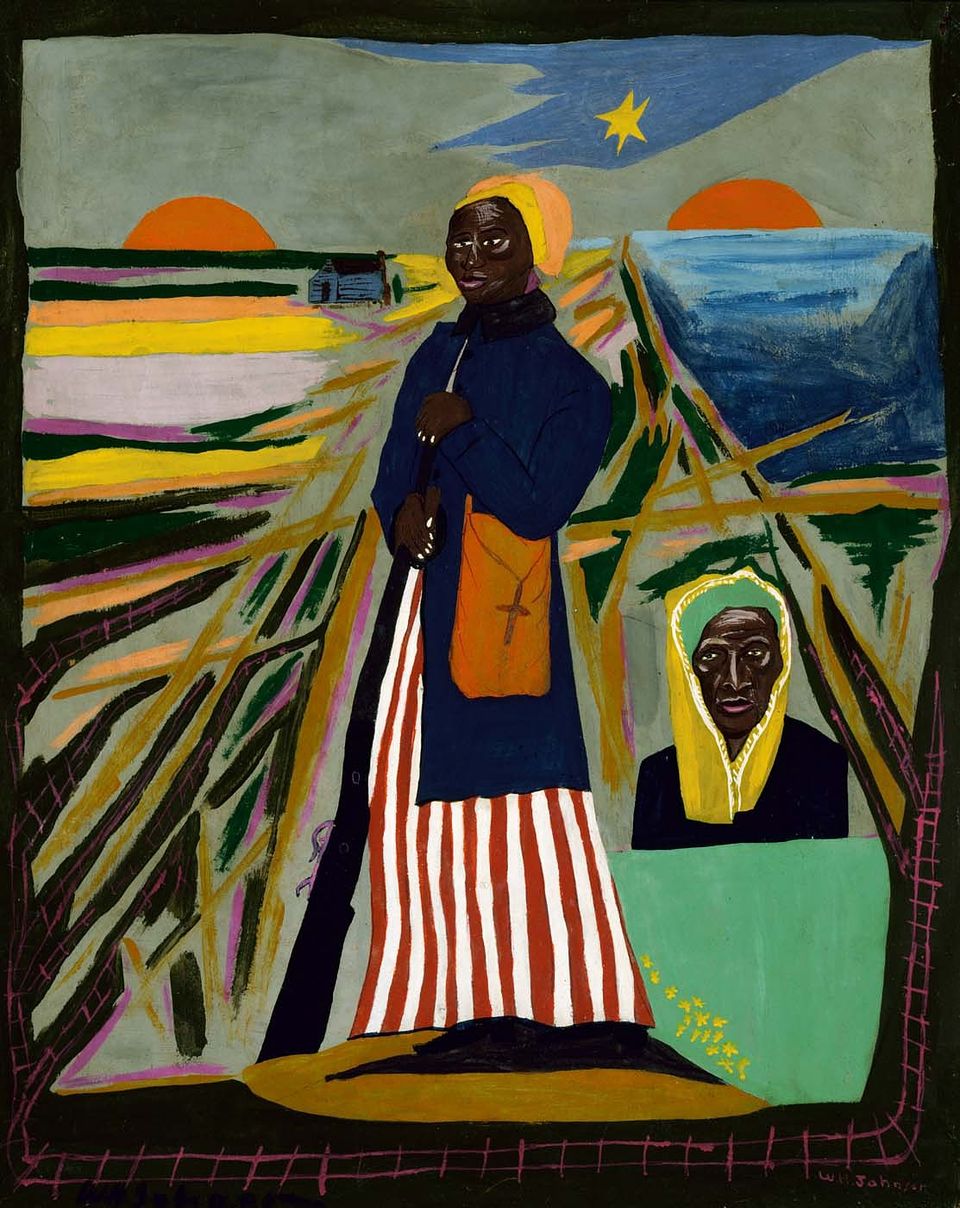Artwork Details
- Title
- Harriet Tubman
- Artist
- Date
- ca. 1945
- Location
- Not on view
- Dimensions
- 28 7⁄8 x 23 3⁄8 in. (73.5 x 59.3 cm)
- Credit Line
- Gift of the Harmon Foundation
- Mediums
- Mediums Description
- oil on paperboard
- Classifications
- Subjects
- African American
- Landscape — time — sunset
- History — United States — Black History
- Occupation — other — reformer
- Portrait female — Tubman, Harriet — full length
- Object Number
- 1967.59.1146
Artwork Description
Johnson traced the likeness of Harriet Tubman (about 1822--1913) from a popular nineteenth-century woodcut reproduced in Carter G. Woodson's book, The Negro in Our Times. Standing tall in a striped Civil War--era dress, she holds a shotgun at her side. Behind her, paths crisscross the landscape into the distance and sketchily drawn railroad tracks suggest the escape routes she used to shepherd enslaved people to freedom. Above her, the North Star shines between the rising and setting suns. At the lower right, Johnson painted Tubman as an elderly woman, her head draped in the shawl given to her by England's Queen Victoria.
Tubman probably used the Underground Railroad herself when she first escaped slavery in 1849, and she has long been its most famous "conductor." Between 1849 and 1862 she personally led more than eighty people to freedom and helped them find housing and jobs in the North. More than seven hundred others were freed as a result of her work as a spy for the Union army. After the Civil War, she turned her considerable skills to the cause of women's suffrage.
Works by this artist (1036 items)
Videos
Mary Elliott, curator of slavery at the National Museum of African American History and Culture, answers the question, “What can this shawl tell us about Harriet Tubman?” Gifted to Tubman by Queen Victoria in 1897, Elliott reflects on how the shawl symbolizes the many facets of the abolitionist.
Artist William H. Johnson portrayed Harriet Tubman draped in a shawl similar to the one gifted by Queen Victoria in a double portrait he painted for his Fighters for Freedom series in the mid-1940s. The series celebrates African American activists, scientists, teachers, performers as well as international leaders working to bring peace to the world. This video accompanies SAAM’s exhibition Fighters for Freedom: William H. Johnson Picturing Justice.
William H. Johnson, Harriet Tubman: americanart.si.edu/artwork/harriet-tubman-12126
Shawl given to Harriet Tubman by Queen Victoria: https://nmaahc.si.edu/object/nmaahc_2009.50.39














